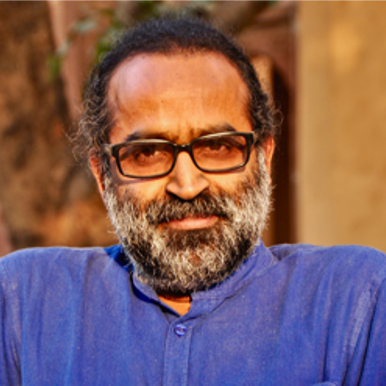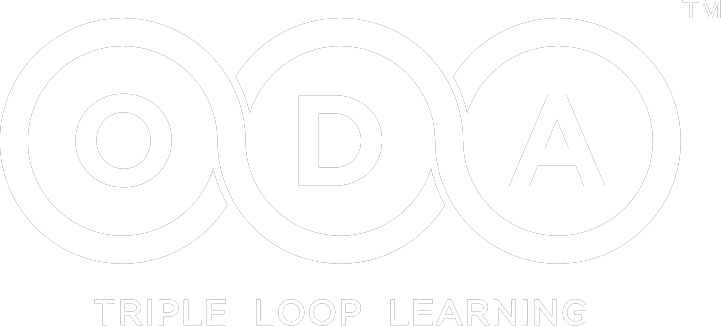Hire a Coach and Create Your Future


Santhosh Babu
What is the best way for senior executives, professionals and celebrities to make sure that they perform at their best continually without sacrificing who they are? Go for advance studies? Hire a consultant? Take a sabbatical? What is the best way to build a talent pipeline in your organization and groom your leadership talent?
Whenever Bryce Dallas Howard teased her father, the actor and director Ron Howard, about how much actors are paid, he’d say, “It’s so that they can pay their therapist.” Now, decades later, Bryce Dallas is herself a star in Hollywood. But she does not see a therapist – instead, she has a coach who helps her to navigate the complexities of show business, according to a New York Times article. The rich and famous are more and more seeking coaches to bring happiness and meaning to their lives than going to a therapist. While coaching and therapy are completely different and one cannot replace the other, many of the challenges of leading a high-pressure life and being at your peak performance level can be addressed through coaching.
Having a therapist, a shrink, an analyst was something the rich and famous always found useful in the West, but in India we associate some kind of stigma with seeing a therapist. “In Hollywood if you don’t have a shrink, people think you’re crazy,” Johnny Carson, an American television host, comedian, and musician, once commented. Jennifer Aniston, famous actress, Director and producer once mentioned “In your thirties go for therapy. Clean up all of the shit. Clean up all of the toxins and the noise. Understand who you are. Educate yourself on the self. You can undo a lot of things. If you’re not happy, you can become happy. Happiness is a choice.” Now at the age of 44, Jennifer Aniston has a life coach.
While therapy mostly focuses on the past, coaching helps us grow into who we want to become by using our aspirations and key strengths, encouraging habit changes in our daily lives, committing us to action and focusing on the future. Coaching is about an individual expanding his or her awareness and taking action for positive change. Coaching gained its popularity in the last decade not just among CEO’s but also among professionals like doctors, lawyers and actors. Atul Gawande, Professor in the Department of Health Policy and Management at the Harvard School of Public Health and Professor of Surgery at Harvard Medical School wrote that surgeons can improve their productivity by having a coach.
Eric Schmidt, Chairman of Google, when asked what the best advice he ever got was, has been reported to reply, “Hire a coach.” He added that his immediate reaction was not favorable, which happens to be the most common reaction to such a suggestion. Nearly two-thirds of CEOs do not receive coaching or leadership advice from outside consultants, according to the latest study from the Center for Leadership Development and Research at the Stanford Graduate School of Business. In India this percentage would even less.
What can be achieved through coaching? At a personal level, coaching can contribute to an individual’s satisfaction at work and at home and could result in lower stress levels, less frustration, and increase self-esteem and satisfaction with life. The coach helps his clients acquire a greater sense of authenticity, and this is reflected in the way they deal with their stakeholders. People who hire coaches want help in achieving their life goals, improving their relationships, dealing with others more effectively, etc. Business leaders who hire coaches either want to develop new skills and behaviours or an external unbiased support to drive initiatives like culture building, developing talent, aligning top teams, business transformation etc. At an organizational level, leadership coaching can help transform the organization’s culture, structures, and patterns of decision-making, leading to organizational rejuvenation.
So, senior executives in organizations, celebrities, sports stars and people from all walks of life can all benefit from coaching. Why does coaching work for people who take responsibility and accountability for their actions?
1).Undivided attention without an agenda: A coach listens to you with an unbiased view. A coach wants nothing more than your success » whatever that might mean for you or however that might look like. People who are close to you, your boss, subordinates, peers all have an agenda when it comes to you, but a coach is there to support you to achieve what you want. This is an excellent example for how people who are close to you can have agendas for you. This is from one of my favourite movies, “Before Sunrise”. “I’d say to my Dad, “I want to be a writer”, and he’d say, “Journalist.” I’d say, “I want to have a refuge for stray cats” and he’d say, “Veterinarian.” I’d say, “I want to be an actress” and he’d say, “TV newscaster.” It was this constant conversion of my fanciful ambitions into these practical money-making ventures.”
2). Clarity and Alignment: Many a time there is confusion about what we want and how to go about it. A coach brings clarity about your goals and action plans.
3). Accountability: Having regular appointments and someone following up with you on your action plan helps you stay on track.
4). Unconditional Support: Most coaches follow Carl Roger’s approach. Carl Roger, a psychologist defined unconditional positive regard as being “an outgoing positive feeling without reservations, without evaluations”. A coach’s support is not conditional upon the client being a certain way or achieving a particular goal. A coach wants only for the person to realise his/her goals in the most effortless, productive and satisfying way possible. A coach creates a safe space of listening, compassion and unconditional support. These qualities help to create a context of acceptance and possibility – qualities that help us to bring forth our vision. Coaching is also a confidential relationship where a client feels safe to express.
5). Powerful questions to create awareness and generate new possibilities: Coaches are trained to ask questions and not to give solutions. It is the consultant’s job to give expert answers. Coaches ask questions to help you have clarity, awareness and help you discover answers for yourself.
6). Focus on your strengths and align them to your goals: A coach helps you to discover your core strengths and gifts and expand them to reach your life purpose. When you are operating from your strengths, you experience a flow and greater sense of satisfaction and achievement.
So if you are interested in continuously improving yourself, performing at your best and having greater joy and satisfaction in life, it would be a good idea to have a coach. Remember, CEOs, celebrities, surgeons and people from all walks of life are reaching out to coaches because the future is bright when you create it.
Please click here to download the latest OD PUBLICATION.

